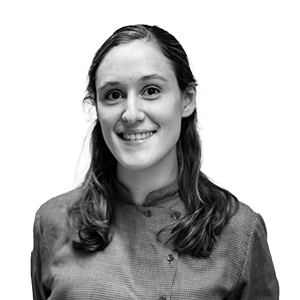"It's exceptional": what do experts think of the decision to keep Pujol on the bench?
The legal experts consulted agree that it is not common for a court to depart from the unanimous opinion of forensic doctors.


BarcelonaFormer Catalan president Jordi Pujol will finally take his place in the dock.Although doctors warn that he is not fit to stand trial, the National Court has decided to keep him and his seven children as defendants in the case that will determine whether the family's fortune abroad came from alleged corrupt dealings or was, as the former president has always maintained, an inheritance from his grandfather Florenci. The decision is not final: the judges reserve the right to review it once Pujol has his turn to testify. Experts consulted by ARA agree that only then will a full analysis of the decision's impact on the defense rights of the former president, his children, and the other accused businessmen be possible. However, they also warn that it is rare for a court to deviate from an opinion endorsed by two independent experts, in addition to the former president's doctors.
"It's an exceptional case. The forensic reports should be sufficient to exonerate him," explains criminal lawyer Ramon Setó, who admits that, generally speaking, judges are usually reluctant to exclude a defendant from the trial due to loss of mental capacity—the law contemplates this in cases of "dem." And the first condition for judging someone is that they are "capable of understanding the meaning of the trial," adds Josep Maria Tamarit, Professor of Criminal Law at the UOC (Open University of Catalonia). The expert acknowledges that "it's not very common" for a court to disregard conclusive forensic reports, but admits that it's possible that, in case of doubt, the National Court might prefer to wait and hear from the person in question.
However, for Setó, postponing the decision until Pujol's testimony, depending on his condition at that time, is also problematic. Firstly, because it presupposes that the 95-year-old former president is capable of following the trial. And, together with his lawyer, Cristóbal Martell, he will assess which strategy is most favorable to his interests. However, according to forensic experts, Pujol "is not in a physical or cognitive condition to stand trial," and his condition has worsened since he suffered pneumonia that led to him being hospitalized for six days"Here, it's important to keep in mind that following the trial is not passive," the lawyer warns, referring to the right to consult with the lawyer throughout the proceedings and to follow the sessions.
The former president will attend the hearings, which are expected to last until May, but via videoconference. "He has the right to an effective defense, and that includes legal counsel, but also the right to self-representation," explains criminal lawyer Miguel Capuz. Capuz also warns of potential violations of the right to a fair trial if Pujol faces a trial he lacks the "capacity to understand." In any case, this situation not only affects him but also the other defendants, adds the lawyer, who is also the former president of the Criminal Law section of the Barcelona Bar Association (ICAB).
A decision to set an example?
Like the other experts, Montserrat Nebrera, Professor of Constitutional Law at UIC, finds it "strange" that a court would disregard the expert report and points to possible consequences for the rights of the other defendants. "If he decides to speak and blames a son, to what extent is that valid as evidence?" she asks. Martell, Pujol's lawyer, is known for his skill in finding loopholes in the chain of evidence that allow him to overturn accusations based on the right to effective judicial protection. For the moment, the Pujol defense has already attempted this approach on Monday, questioning the legitimacy of an investigation closely linked to Operation Catalonia. However, Nebrera also emphasizes that the National Court's decision to keep Pujol in the dock falls within its "discretion." As long as this discretion does not become "arbitrariness," he maintains, it falls within the judges' purview, provided they do not end up judging a person "unaware" of what is happening during the trial. Nebrera believes that the Court's position may have been influenced by a desire to demonstrate that the full weight of the law falls equally on everyone, whether someone who has governed Catalonia for 23 years or an ordinary citizen. The argument of "setting an example," he concludes, has been used repeatedly by the Tax Agency, for example, in imposing sanctions on public figures.
